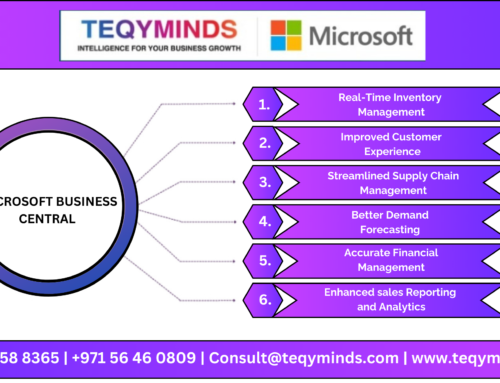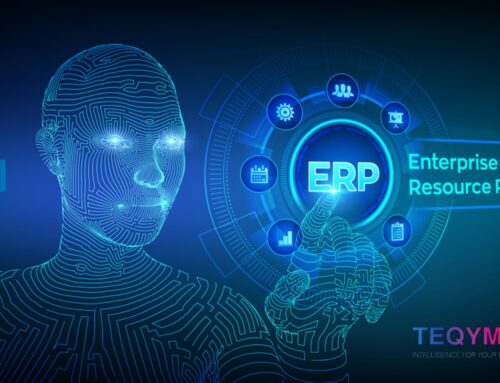In today’s fast-paced digital landscape, businesses are increasingly relying on data to drive decisions, optimize operations, and gain a competitive edge. However, the sheer volume and complexity of data can be overwhelming. This is where Microsoft Azure AI steps in, offering cutting-edge tools and technologies to transform raw data into actionable insights. Azure AI empowers businesses to make smarter, faster, and more informed decisions, paving the way for a data-driven future.
Why Azure AI Matters for Businesses
Azure AI is a suite of artificial intelligence services and tools designed to help businesses harness the power of their data. From predictive analytics to natural language processing, Azure AI provides capabilities that enable organizations to:
- Analyze data in real-time for immediate insights.
- Automate repetitive tasks, freeing up resources for strategic initiatives.
- Predict trends and behaviors, allowing businesses to stay ahead of the curve.
- Personalize customer experiences to boost engagement and loyalty.
By leveraging Azure AI, businesses can unlock the full potential of their data, turning challenges into opportunities.
Key Features of Azure AI
- Azure Machine Learning:
Azure Machine Learning enables businesses to build, train, and deploy machine learning models at scale. Whether predicting customer behavior or optimizing supply chains, this tool provides the foundation for advanced analytics. - Azure Cognitive Services:
With services like speech recognition, image analysis, and language understanding, Azure Cognitive Services allows businesses to integrate AI into their applications seamlessly. For example, a retail company can use image recognition to analyze customer preferences based on product photos. - Azure Synapse Analytics:
Azure Synapse Analytics combines big data and data warehousing, enabling businesses to query and analyze data on their terms. This unified platform simplifies data integration and accelerates insights. - Azure OpenAI Service:
Azure OpenAI Service brings the power of generative AI to businesses, enabling them to create content, automate workflows, and enhance decision-making processes.
Real-World Applications of Azure AI
- Predictive Analytics for Retail:
Retailers can use Azure AI to forecast demand, optimize inventory, and personalize marketing campaigns. For instance, predictive models can analyze historical sales data to anticipate future trends, ensuring the right products are available at the right time. - Customer Support Automation:
Azure AI-powered chatbots can handle customer inquiries, resolve issues, and provide personalized recommendations. This not only improves customer satisfaction but also reduces the workload on support teams. - Healthcare Insights:
In the healthcare sector, Azure AI can analyze patient data to identify patterns, predict outcomes, and recommend treatments. This leads to better patient care and more efficient resource allocation. - Financial Risk Management:
Financial institutions can leverage Azure AI to detect fraud, assess credit risk, and optimize investment strategies. Real-time data analysis ensures timely and accurate decision-making.
Benefits of Azure AI for Decision Making
- Speed and Efficiency:
Azure AI processes vast amounts of data quickly, enabling businesses to make decisions in real-time. This is particularly valuable in industries like finance and retail, where timing is critical. - Accuracy and Reliability:
By eliminating human error and leveraging advanced algorithms, Azure AI ensures that insights are accurate and reliable. This builds confidence in decision-making processes. - Scalability:
Azure AI is designed to grow with your business. Whether you’re a small startup or a large enterprise, Azure AI can scale to meet your needs. - Cost-Effectiveness:
With pay-as-you-go pricing, Azure AI allows businesses to optimize costs while accessing powerful AI capabilities.
Challenges and Solutions
While Azure AI offers numerous benefits, businesses may encounter challenges during implementation:
- Data Privacy Concerns:
Businesses must ensure that sensitive data is protected. Azure AI addresses this with advanced encryption and compliance features, including GDPR and HIPAA compliance. - Integration Complexity:
Integrating Azure AI with existing systems can be complex. To overcome this, businesses can leverage Azure’s extensive documentation and support resources. - Skill Gaps:
Implementing AI requires specialized skills. Azure AI provides user-friendly tools and pre-built models to simplify adoption, even for non-technical users.
The Future of Data-Driven Decision Making
As AI continues to evolve, its impact on business decision-making will only grow. Azure AI is at the forefront of this transformation, enabling businesses to:
- Harness the power of generative AI for creative solutions.
- Integrate AI seamlessly into workflows for enhanced productivity.
- Drive innovation by uncovering insights that were previously hidden in data.
The future of decision-making is not just about analyzing data—it’s about using AI to anticipate trends, adapt to changes, and innovate continuously.
Conclusion
Microsoft Azure AI is revolutionizing the way businesses approach data-driven decision-making. By providing tools that are powerful, scalable, and easy to use, Azure AI empowers organizations to unlock the full potential of their data. Whether optimizing operations, enhancing customer experiences, or driving innovation, Azure AI is the key to staying competitive in a rapidly changing world.
If you’re ready to transform your business with Azure AI, now is the time to act. Let’s embrace the future of data-driven decision-making together! 🚀






Leave A Comment